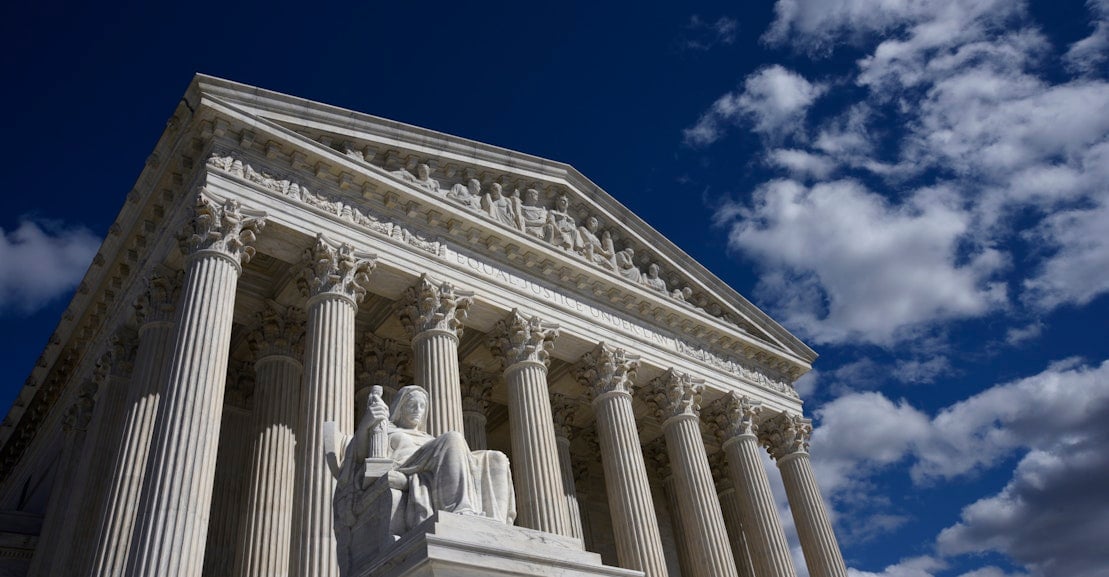- cross-posted to:
- politics@lemmy.world
- cross-posted to:
- politics@lemmy.world
In a Wall Street Journal op-ed published in 2021, two of the Moores’ lawyers also declared unambiguously that the lawsuit “stands to slam shut the door on a federal wealth tax like the one Sen. Elizabeth Warren wants to enact.” They made a direct pitch to “the courts” to hear the Moores’ case “now” to make it easier to block a wealth tax in the future.



My understanding of the article is that the Moores are suing probably based on the difference between wealth and income.
The Trump policy stipulates that if you own 10+% of a foreign business, you are taxed on the value of that ownership. Valuation is a function of wealth as I understand it because it’s folded into how much a person is deemed “worth.” Something similar here is property or stocks. If you own so many shares of a company, you are “worth the value” of those stocks even though that isn’t currency at your disposal. That’s why people are taxed on the value of stocks they sell because now that’s moved from an imaginary realm of value into income into the bank account.
The Moores are saying: but valuation isn’t income, so you can’t tax us.
The lower courts have said: valuation is deferred income, so yes the federal tax on you was legal.
I don’t think an argument about discrimination is at all on the table. I think it’ll be a more pedantic argument of value, wealth, and income - which of these is taxable and which of these are imaginary (with real outcomes).
This is a complex notion for a non-legal person such as myself. The Trump tax package was absolute bullshit, but even I am surprised this one provision was in it. Surely this was created to hurt people Trump deemed as enemies, such as Mitch McConnell’s wife Elaine Chao, but then “ordinary” rich people like the Moores got swept up into it. I am very much in favor of more taxes on the rich, especially for overseas finances, which often is sheltered from federal taxation and transparency. But even I am torn about trying to make the distinction between valuation and income, and which should be taxable.
I did not click the article or read the cases so thank you for providing this summary.
“The lower courts have said: valuation is deferred income, so yes the federal tax on you was legal.”
This is a bad argument… you get taxed on your house and chattel property by lower branch of government at that. You get taxed on the value of the property. Similar legal underpinnings can be used for a wealth tax.
So here it sounds like, case is specific to ownership of foreign equity. I am not sure why this was implemented and honestly I have not heard of it. We have controlled foreign companies rules in place to target foreign earned income of us residents, which is riddled with holes like swiss cheese. For example, tax code provides an exclusion from this regime for companies utilizing foreign contract manufacturers. What has happened to US manufacturing over last 30 years… asking for friend. But i digress.
The title is a bit misleading since this is [NOT] an a wealth tax per se and it was not really structured as such. If the policy makers went this route, they almost certain wanted it to be over turned, the legal underpinnings are just not there.
Call it what it is, and tax it as such as long as it is fair to the class of people being subjected to the regime, there is not reason for corrupt geriatric council to be involved.
The tax implications are far beyond my life experience as someone who qualifies for the 1040EZ form every year lol
I’m not sure if this was a Trumpian Easter egg bomb that was planted and waiting to be discovered for the purpose of further eroding the federal government’s ability to raise funds through the IRS. That does sound like it comes from the conservative playbook, but the way this particular case has played out sounds like it required far more foresight than what Trump and his sycophants could have devised without external help.
You make an excellent case about the taxation on value for homes taking place at the municipal level, but the case for stocks is at the federal level, so I can see why business dealings might fall under the scope of federal taxation.
I think if this particular court case was only about the scope of the 16th amendment, then it would be a bit more cut and dry. However, the lawyers for the Moores are also pushing rhetoric that this court decision should also be instrumental in guiding and shaping future legislation on wealth tax and that is so incredibly unethical and problematic. That is not the role of the court and should not be one of its aims.
Because two things are at issue here, I find it hard to pick a side to root for: yes, defeat for the Moores so the law stands and proposals for future wealth tax legislation aren’t encumbered by this decision; or yes, a tax policy part of an otherwise regressive tax system implemented by an authoritarian criminal is defeated to really stick it in that guy’s eye, but now Pandora’s box is opened for nearly all taxation on wealth to have new precedent set and possibly stymy good, progressive legislation proposals.
If “valuation isn’t income”, then fuck me paying my property taxes from this point forward.